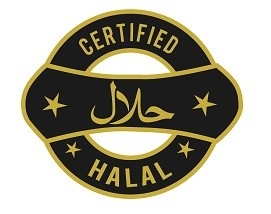
‘Halal’-certified quality Indian products to push into the potential Gulf market, says expert
With the largest chunk of overseas Indian population living in the Gulf countries, the market potential for ‘Halal’-certified products from India in this region continues to grow, says Haji Shakeel Qureshi, a global promoter of ‘Halal’ certification and chairman of Indian exporting major Marya Day Group.
This is because, he says, consumers in the Gulf countries prefer ‘Halal’ food and the governments in these countries have created set of ‘Halal’ standards that cover everything from farm-to-fork. India is currently a fast growing economy in the world and increased awareness about ‘Halal’ quality standards in the trade and business sector can provide elevated opportunity to upcoming entrepreneurs from India to export their products to more foreign countries.
Mr. Qureshi leads a global drive to create awareness on ‘Halal’ trade and its hugely positive impact on the society, considering ‘Halal’ is still an under-appreciated concept especially in India. “Hundreds of Indian ‘Halal’-certified items ranging from food products to cosmetics and personal care products are being produced in line with the concept of ‘Halal’, which is being accepted globally as a sustainable and ethical way of living,” he said.
“In the Gulf countries, ‘Halal’ mark is mandatory for all import products and is now the new benchmark for quality standards. The recent developments in ‘Halal’ certification opens up opportunity to tap global food market of about two billion people in the Middle East, Asia Pacific, European Union, USA and the Central Asia. However, the awareness on ‘Halal’ is meagre in many exporting countries as this is currently being accepted as an international certification of standards and assurance of quality and purity in different parts of the world, especially in the Gulf region,” he added.
“‘Halal’ standards have become the backbone of international trade and export business, ensuring safety and quality of the products and services. The ‘Halal’ mark also facilitates international trade and improves the environment in which we live in. With export activities from India are growing remarkably, the Indian Government and industry bodies should make ‘Halal’ mark mandatory on all products so that the export of Indian FMCG products can easily cover more international markets,” Mr. Qureshi further said.
“‘Halal’ labelling prevents deception and helps consumers make welfare-maximizing choices. A consumer can get the most only if he/she has accurate information about the foods under consideration. Accordingly, the goal of label information is to help consumers identify the food products that best match their preferences, thus helping consumers spend wisely”.
According to Mr. Qureshi, ‘Halal’ was a misunderstood concept in India before. This scenario is changing gradually these days. “We all are quite familiar with word ‘Halal’ now, but our knowledge of this word is still shallow. Awareness on the real sense of this word is very low among the public and the major chunk of consumers. Most of the people relate the term ‘Halal’ to just ‘Halal meat’, which is just one small aspect of ‘Halal’.”
“‘Halal’ is about setting a direction for life in accordance with ethics and good practice. The real meaning of this term should be made understood to all consumer segments and people from all walks of life. Leading a moral life and following ‘Halal’ in our day-to-day life will not only help us become a good human being, but uplift the society as a whole,” he emphasized.
‘Halal’ is an Arabic word, which means permitted, lawful with respect to which no restriction exists. The word ‘Halal’ has a broader meaning, which actually denotes whatever one does should comply with ethical means. Whatever one earns, sells, consumes or trades should be done with honesty, clear thoughts in addition to abstaining from dishonesty and cheating.


























